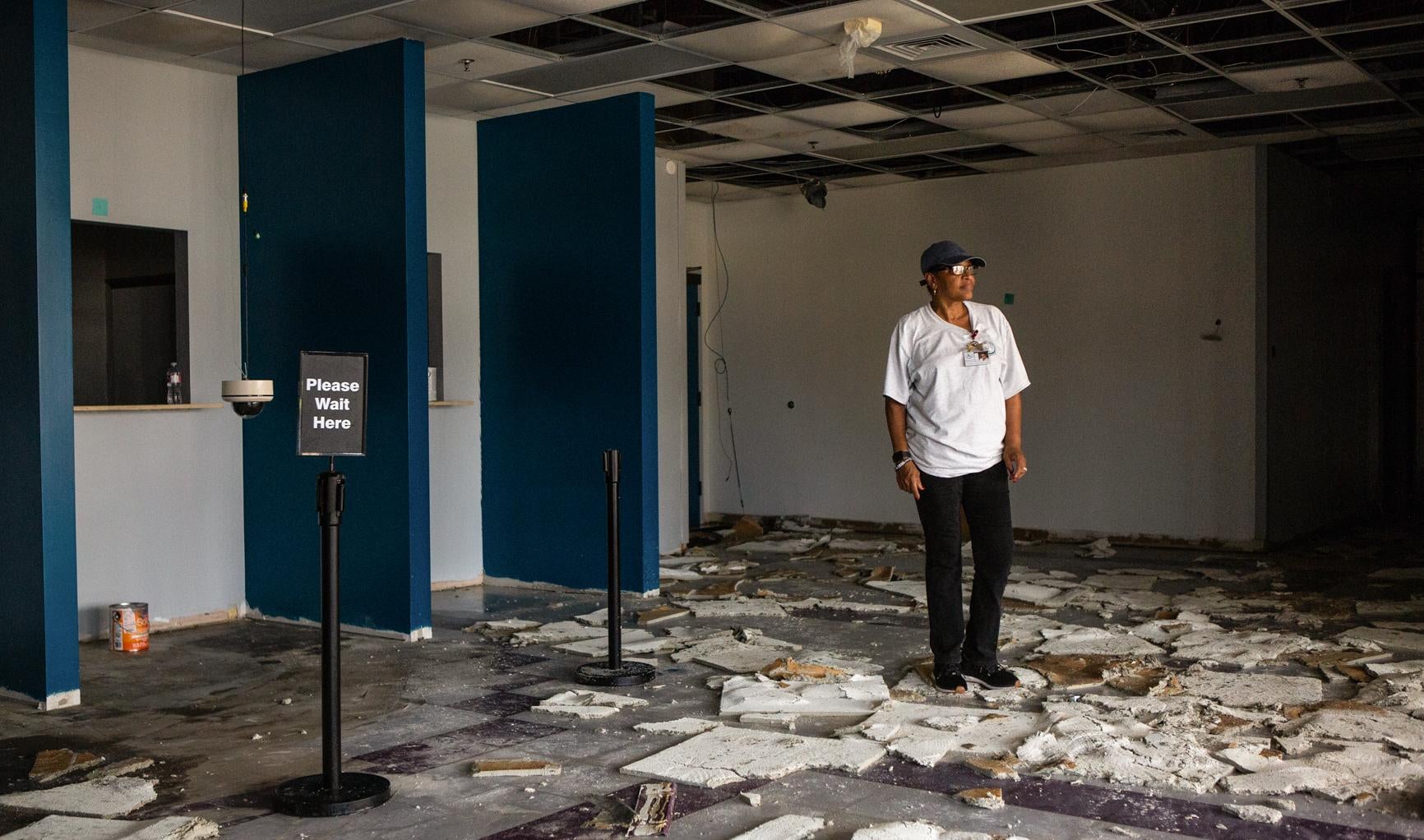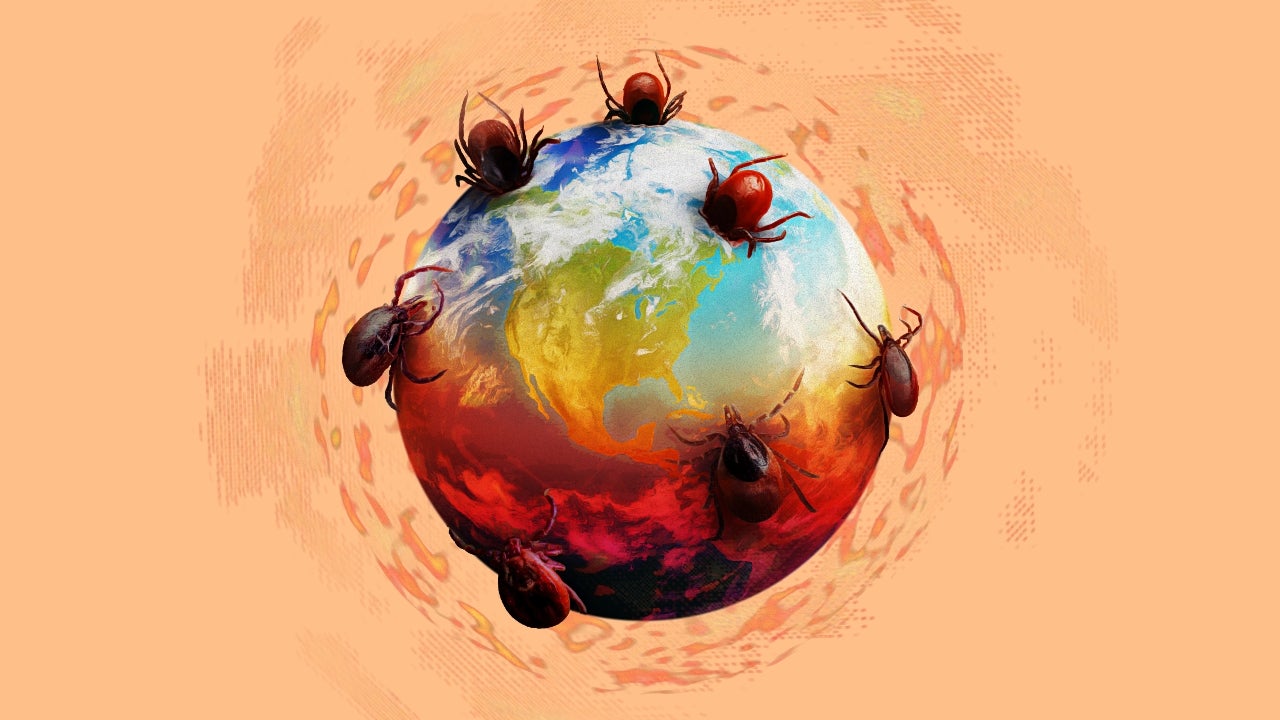Frontline clinics across the United States say climate change is disrupting care

Better understanding of climate effects on health motivates providers to take action
Boston, MA – As climate change makes extreme weather events like hurricanes, wildfires, and heat waves more frequent and intense, frontline health clinics around the country report that extreme weather is disrupting care delivery, and staff and providers say they are motivated to use resources that help improve clinic and patient preparedness.
These findings, published today in BMC Primary Care, come from a needs assessment survey conducted in 2021 by the Center for Climate, Health, and the Global Environment at Harvard T.H. Chan School of Public Health (Harvard Chan C-CHANGE) and Americares, the health-focused relief and development organization. The survey is the first to assess climate and health knowledge, motivators, preferences, and needs of all staff at frontline safety net clinics, not just providers, and helps identify what clinics need to improve climate resilience.
Researchers analyzed surveys from 430 administrators, case workers, providers, and other staff at frontline clinics in 43 states, and found that over 80% say climate-related extreme events caused some kind of disruption in clinical care delivery over the last three years, including from power outages, closure of clinics, staff shortages, and loss or spoilage of vaccines and medications. The vast majority of providers and case workers surveyed—84%—reported climate change is impacting patient health, yet only a little more than one-third say they discuss climate-related health risks with patients. Almost half of the providers and case managers—44%—reported they lacked confidence in developing disease management plans to protect patients from climate impacts. About half of total respondents said they have plans in place to address risks to health care access and delivery during extreme weather.
Frontline clinics, which include Federally Qualified Health Centers and Free and Charitable Clinics, provide safety net care to patient populations most vulnerable to climate-related extreme weather events.
“Climate change is impacting frontline clinics now that often serve the most vulnerable communities,” said lead author Tess Wiskel, an emergency medicine physician at Beth Israel Deaconess Medical Center and former climate change and human health fellow at Harvard Chan C-CHANGE. “Our survey shows us what clinics need to ensure their staff are empowered to keep their doors open and their patients safe—like access to emergency power, real-time information, and planning resources.”
Over half of respondents said they were motivated to learn how to help patients prepare for extreme weather, and they prefer succinct materials like checklists, planning guides, and brief information sheets to do so. Notably, respondents who agreed that climate change is caused by humans were four times more motivated to use clinic resilience resources, and those who reported higher knowledge of climate effects on health had 50% more motivation to use resources. Direct patient care staff like providers and case workers were more likely to discuss climate change with patients if they believe that climate change affects patient health. The findings suggest that educating clinic staff about the health impacts of climate change may increase their use of resilience resources. More research is needed to assess whether staff education improves climate resilience in frontline clinics.
“These survey findings were the driving force that led Americares and Harvard Chan C-CHANGE to create our groundbreaking Climate Resilience for Frontline Clinics Toolkit,” said co-author Mariel Fonteyn, Americares U.S. Director of Emergency Response and a disaster preparedness expert who worked on the survey and launch of the toolkit. “With extreme heat, wildfires, hurricanes and flooding becoming more frequent and intense, and affecting inland areas such as western North Carolina that don’t expect major hurricanes, educational resources for health providers are needed now more than ever.”
The toolkit, launched in 2022, provides free online resources in English and Spanish for patients, providers, and clinic administrators on extreme heat, wildfires and wildfire smoke, hurricanes, and flooding. The toolkit has been piloted by clinics around the country, and an expanded version was released in 2024. To date, the materials in the toolkit have been downloaded over 20,000 times.
Media Contacts:
Anna Miller/Harvard Chan C-CHANGE:
(617) 610-1620
amiller@hsph.harvard.edu
Donna Porstner/Americares:
(203) 658-9579
dporstner@americares.org
About Harvard Chan C-CHANGE
The Center for Climate, Health, and the Global Environment at Harvard T. H. Chan School of Public Health (Harvard Chan C-CHANGE) increases public awareness of the health impacts of climate change and uses science to make it personal, actionable, and urgent. The Center leverages Harvard’s cutting-edge research to inform policies, technologies, and products that reduce air pollution and other causes of climate change. By making climate change personal, highlighting solutions, and emphasizing the important role we all play in driving change, Harvard Chan C-CHANGE puts health outcomes at the center of climate actions. To learn more visit https://www.hsph.harvard.edu/c-change/
About Americares
Americares is a health-focused relief and development organization that saves lives and improves health for people affected by poverty or disaster. Each year, Americares reaches 85 countries on average, including the United States, with life-changing health programs, medicine, medical supplies and emergency aid. Americares is one of the world’s leading nonprofit providers of donated medicine and medical supplies. For more information, visit americares.org


